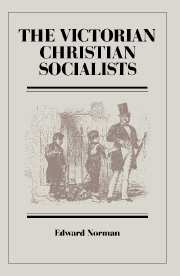9 - Brooke Foss Westcott
Published online by Cambridge University Press: 06 October 2009
Summary
Perhaps more than any other it was Westcott who gave Christian Socialism respectability, who legitimized its existence within the Church, and who, in the process, diluted it. There was nothing discreditable about that: after the prophetic forerunners and the preoccupied zealots, it is always necessary for popularizers to get to work if new ideas are to take hold. Westcott was suited by temperament for the task. His moral seriousness had shown an early development. A schoolboy contemporary later recorded that his conversation was about things ‘which very few schoolboys talk about – points of theology, problems of morality, and the ethics of politics’. Forty years later he told the undergraduates of Peterhouse, where he was preaching, to ‘dare to commit yourselves to the pursuit of a lofty ideal’. It was a persistent theme of his life; a constant recommendation to others. What Westcott did was to employ the available rhetoric of Socialism in a declaration of the need for social reform. It was an extension of his moral seriousness, derived much more from a rather traditionalist religious position than it was from any political source. The declaration also rather noticeably lacked content. Scott Holland, one of the founders of the Christian Social Union in 1889, remarked that no one could afterwards remember what Westcott had actually said at the inaugural meeting in Sion College – ‘only we knew that we were lifted, kindled, transformed’. That is no small thing to have achieved, and Westcott's service to the cause of Christian Socialism was in the end an enormously important one precisely because he inspired men who would otherwise have been antagonistic to take it seriously.
- Type
- Chapter
- Information
- The Victorian Christian Socialists , pp. 162 - 181Publisher: Cambridge University PressPrint publication year: 1987



